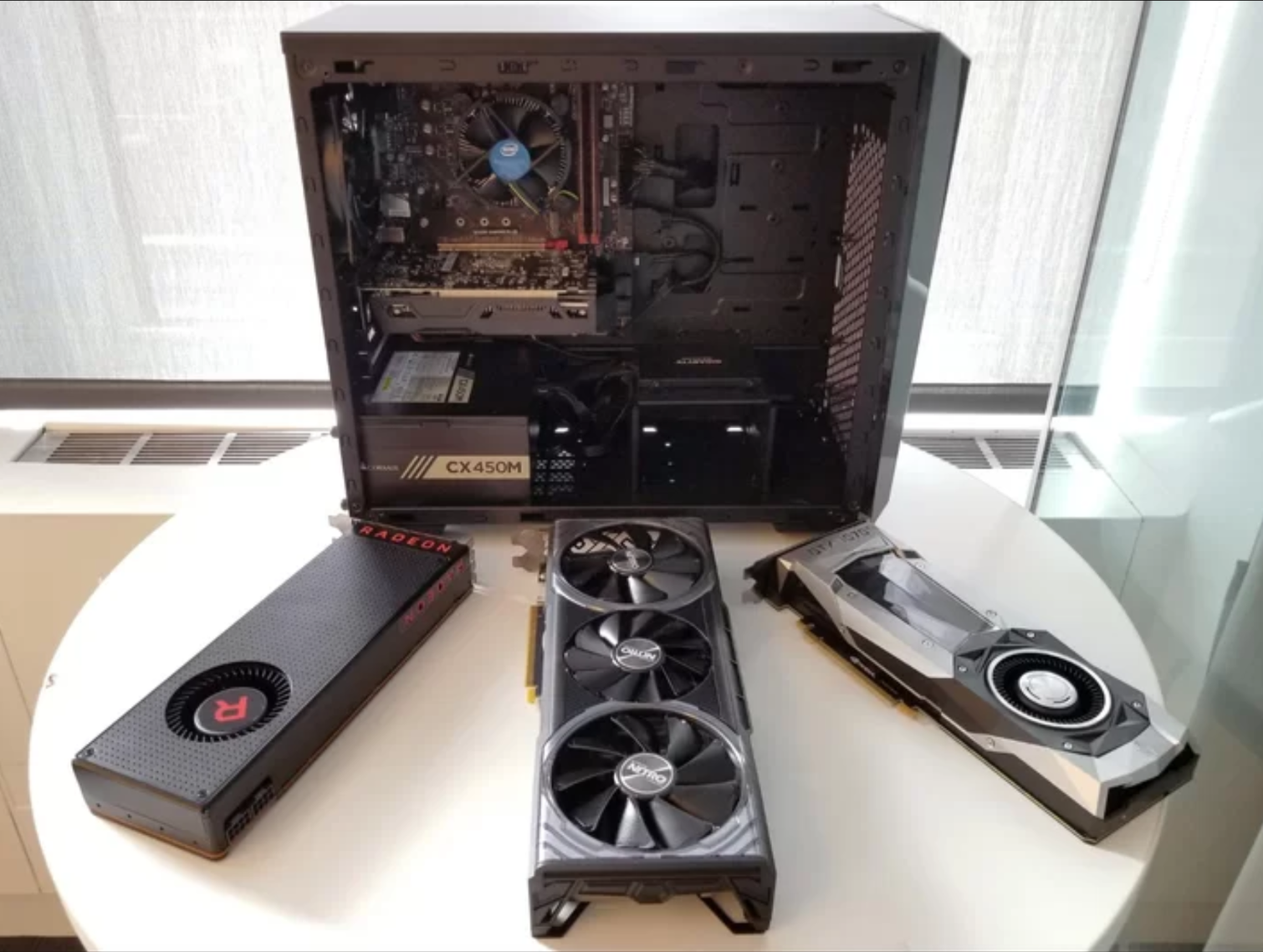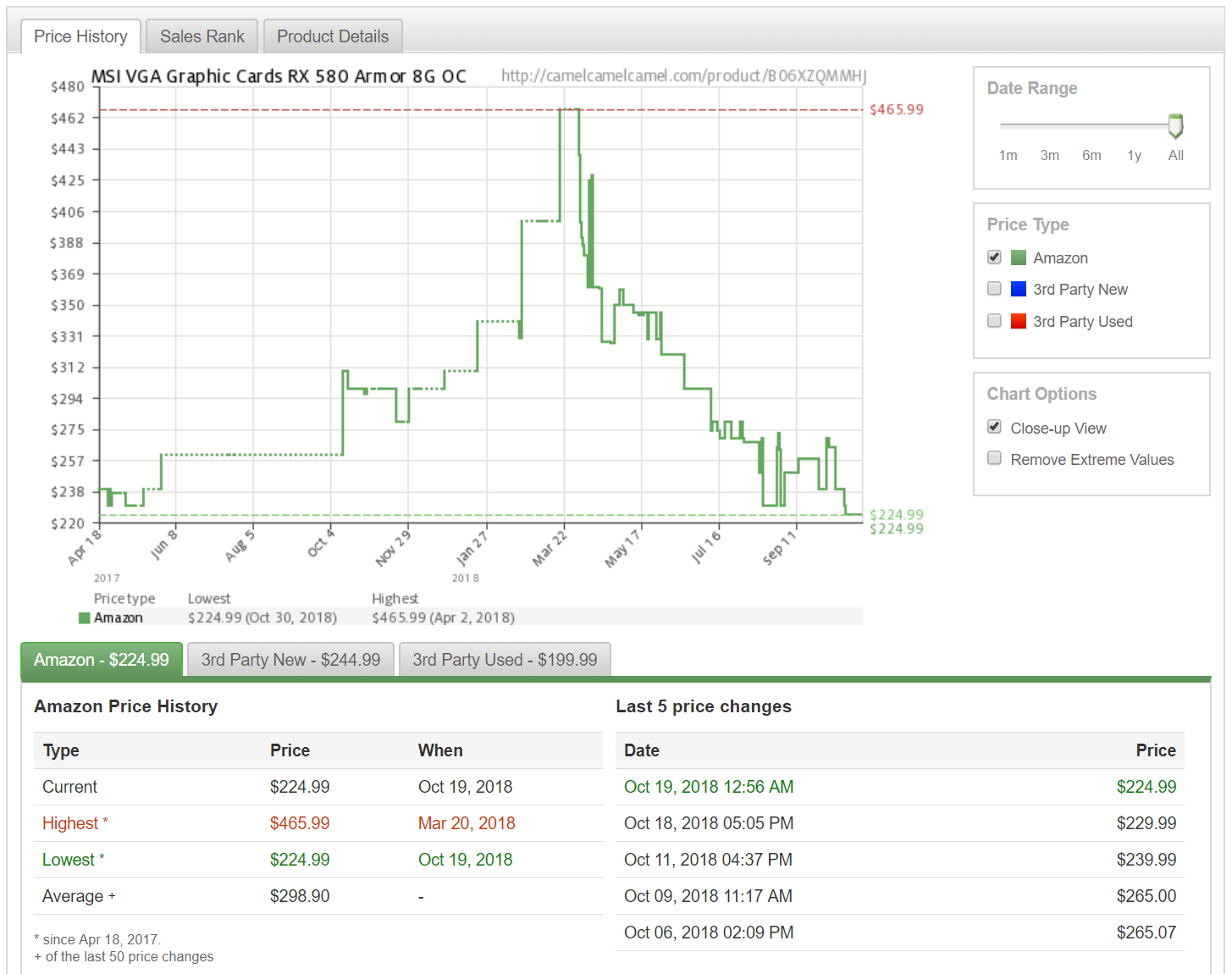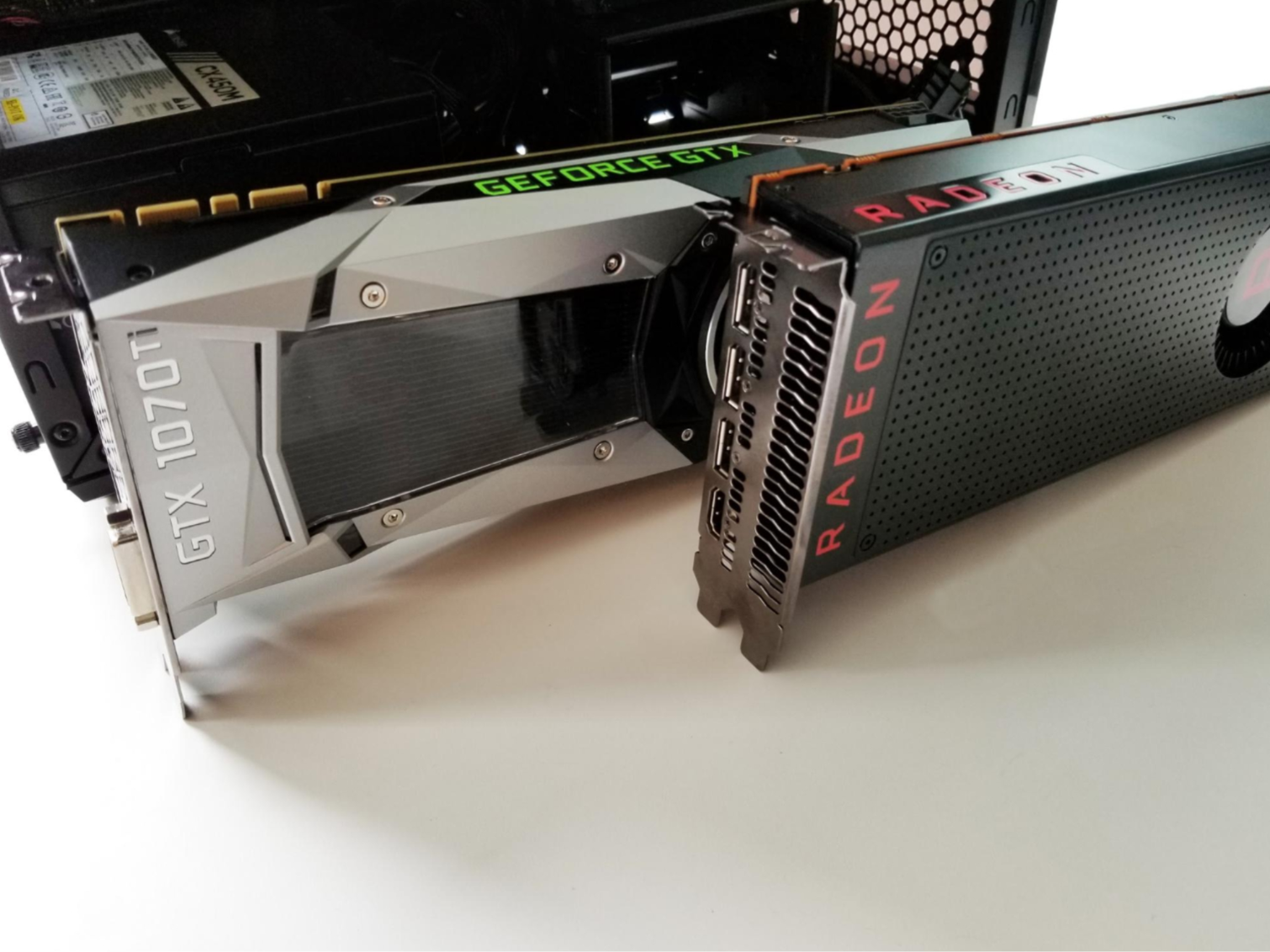How to Get the Best Graphics Card Deal
How do you tell a deal from a dud when shopping for a graphics card?
If you’re in the market for a new graphics card, it can be pretty tough to discern a deal from a dud heading in to Black Friday and Cyber Monday season. Nvidia's RTX cards, whether they be the original models from 2018 or the Super variants that have arrived this year, tent to stick pretty closely to their MSRPs. So it's unclear if we'll see many (or any) major deals on those high-end cards. That said, the launch of the more mainstream GTX 1660 Super means we could see some price drops on the GTX 1660 Ti, one step up the performance ladder.
Older and more mainstream cards have now long been down from their year-long highs due to fading interest in cryptocurrencies. But retailers still sometimes use those previously extreme prices to make a card seem like it’s a steal when, in fact, it may be selling at or close to its 2016-era launch price.
How, then, do you tell if the sale price on a specific card is a good deal or not? A good place to start is to look up that original selling price/MSRP, which you can always find in our graphics card reviews. That at least will give you a baseline and let you know whether or not the current price is inflated.
The next step is to check the specific card or cards you’re considering on a price-tracking site like camelcamelcamel or PCPartPicker.
Armed with the MSRP and a detailed history of pricing, you’re in a pretty good place to tell whether a “sale price” is a legit deal or just a slight dip down from an inflated price. But what cards / GPUs do we specifically expect to see deals on this holiday season?
For starters, as we said up top, don’t expect any major price slashes on RTX cards as the year draws to a close. 10-series Nvidia-based cards are still readily available, but usually at inflated prices that don't make them appealing given their age and the fact that newer, better-performing 20-series options are available for about the same price or less.
The prices of many AMD Radeon RX 580 and RX 590 cards now hover between $180 and $240. And with what looks to be lots of stock still available, they're likely to plunge even more now that AMD has announced the newer Radeon RX 5500 has been announced, aimed at the same market of 1080p mainstream gamers. But given that those Polaris-based cards are based on nearly four-year-old silicon, and we still don't yet know the price or performance of the RX 5500, deals on older AMD cards will have to be pretty steep before buying into something so old makes sense.
If you spot an RX 580 or 590 well below $150 and you don't want to wait, it may be worth considering. But you may also regret that purchase in the coming months if lower-end 5000-series parts become available that perform better and consume less power at a lower price.
If you’re still not sure exactly which card to shop for or how much you should pay to achieve the performance you're after, you should check out our graphics card buying guide, GPU Performance Hierarchy and Best Graphics Cards pages for help narrowing down your options.
Get Tom's Hardware's best news and in-depth reviews, straight to your inbox.
After a rough start with the Mattel Aquarius as a child, Matt built his first PC in the late 1990s and ventured into mild PC modding in the early 2000s. He’s spent the last 15 years covering emerging technology for Smithsonian, Popular Science, and Consumer Reports, while testing components and PCs for Computer Shopper, PCMag and Digital Trends.
-
McDuncun TF Guys, whats with the adds covering the lower 5th of my damn screen!?!?! That is new and not cool!Reply -
shrapnel_indie Not surprising. I've experienced first hand some sneaky stuff in pricing before.Reply
When they closed the K-Mart in my town, as time got close to the doors closed for good during their inventory liquidation. I noted that as the discounts increased, there were slight increases in their "sale" price... making a 70% discount not quite the deal it seemed when the price between the 50% discount and the 70% discount was bumped up a few percentage points. It was still a better price, but not quite a real 70% discount vs the lowest price it was ever marked combined with the discount. To me it's a bit shady, but unfortunately not that uncommon. Other markets do the same thing... offer a sale price where it's save x%, but not telling you that there's a y% bump in price to offset, either to make the x% look better, or bump the profit margin slightly on the sale price. -
hendrickhere It’s interesting that the 1080ti is left of the list. It’s also interesting that, while often selling for much more, the relatively low price-level value (tough MSRP) you have given to the Vega 56 and 64. It would be a great deal to purchase either one of those at $399 or $499 respectively given their performance vs. their top competitors (1070 and 1080 respectively).Reply -
danlw It would be helpful to intermix the AMD cards with the Nvidia cards according to relative performance.Reply -
islandwalker @Mgallo848 It was $699 and have just added it to the chart. Thanks!Reply
@danlw what you are looking for is linked at the end of the story and can be found here. This was a specific story about how to tell if you're getting a deal, not about which cards perform better than others.
https://www.tomshardware.com/reviews/gpu-hierarchy,4388.html -
PapaCrazy Just evaluate it? I like this story. Went through a similar calculus myself buying a new GPU. Some of the good quality 1080ti still had an enormous premium over launch MSRP. I ultimately decided on a nice 1080 slashed below original MSRP because for me good price/performance ratio is close to #1 priority. Who doesn't want a good deal? I suspect I am not alone, and that many other enthusiast have the same mindset. That is why people reacted so badly to RTX launch and the infamous TH article. Articles like this prove most of you guys still get it.Reply -
totalinsanity4 If a Vega 56 card sells for $350 or less I'd be happy, but I also know that that's dreamer talkReply -
buzznut47 I am seeing mostly RX 580s going for $230 and RX 570s going for as low as $150 after rebate. I really think that's a great deal for very similar performance. Best deal I've seen lately.Reply
I purchased a Powercolor Red Dragon 570 last year on Black Friday, and at the time it was a screaming deal at $200. It has a very good cooling solution, comes with a handsome backplate and it was keeping up with the 580's when I was testing. It was under $180 the other day. In my opinion, the RX 580 cards are still a bit high. -
Krazie_Ivan not sure i agree with the choice to use higher "Founders Edition MSRP" on the older Pascal cards, yet use the lower Nvidia-claimed "Partner MSRP" for RTX Turing cards.Reply
...it gives dual impressions; that current Pascal prices are better than they really are (1070 for $390 is $10 more than it's launch MSRP from 30 months ago, but appears as a $60 discount) ...and that RTX Turing prices are far lower than actual street prices (2080ti is a minimum of $240 higher). it also deceptively closes the gap in price-hike from 1 generation to the next.
simply, it's not an apples/apples price chart. pick one MSRP (inflated Reference renaming scheme to deliberately increase profit margins, or a mostly un-obtainably low price designed to fib value impressions) & stick to it.



